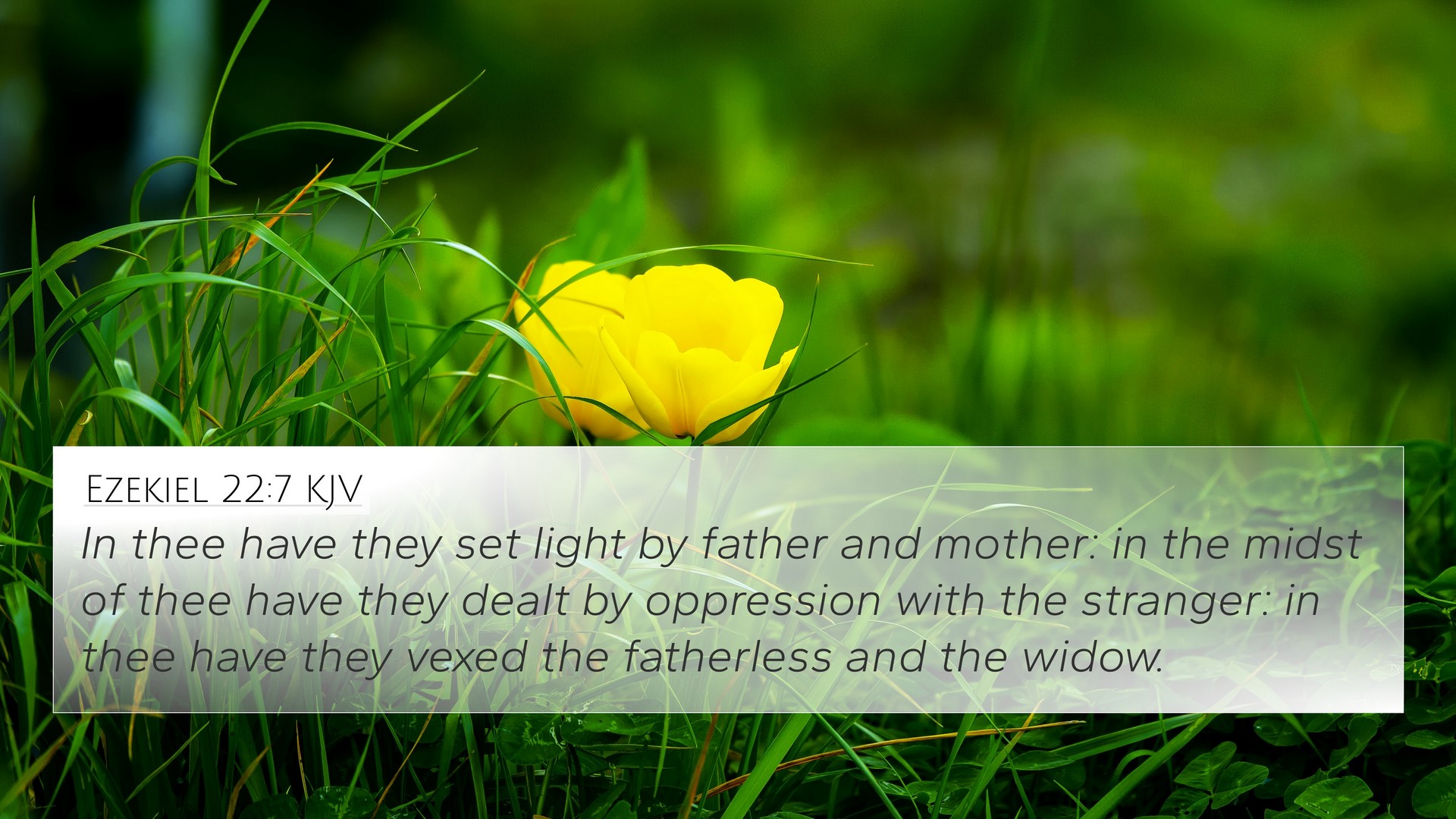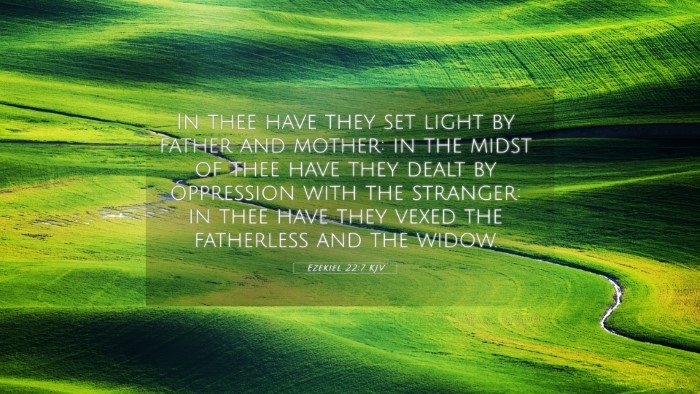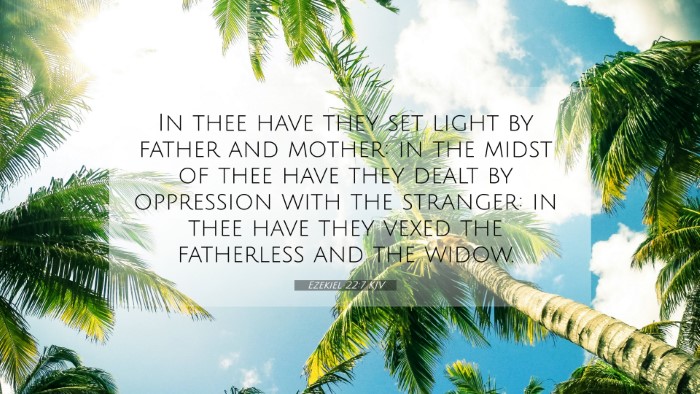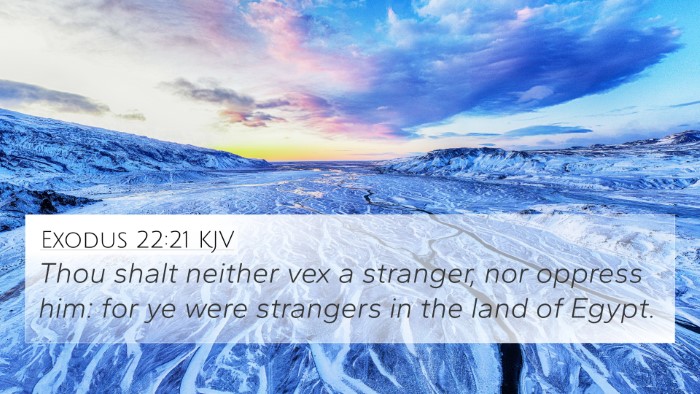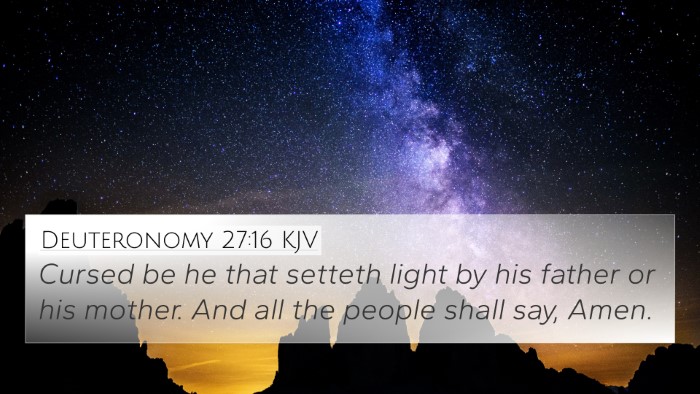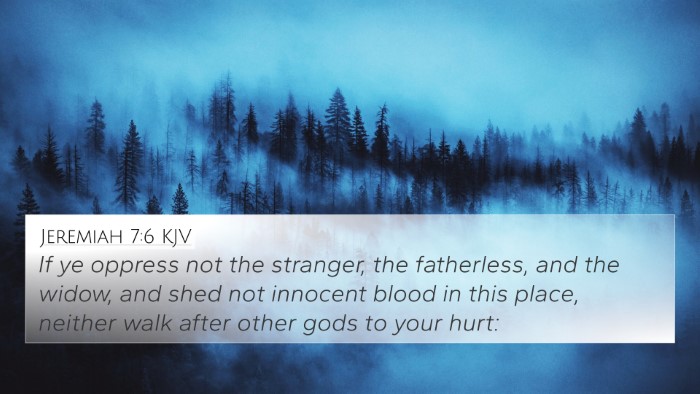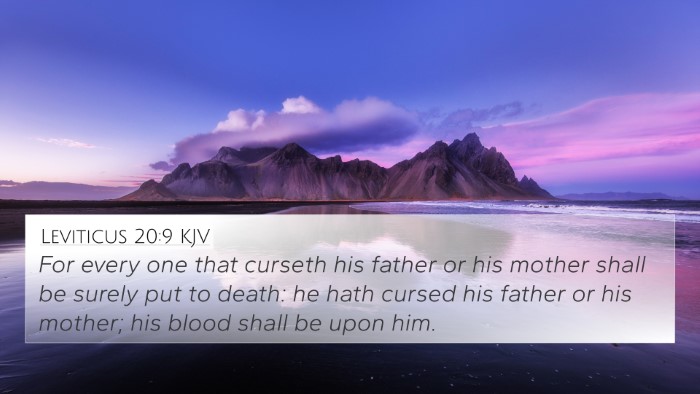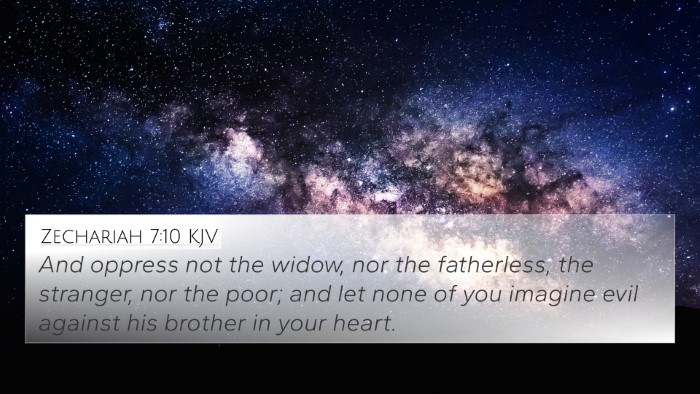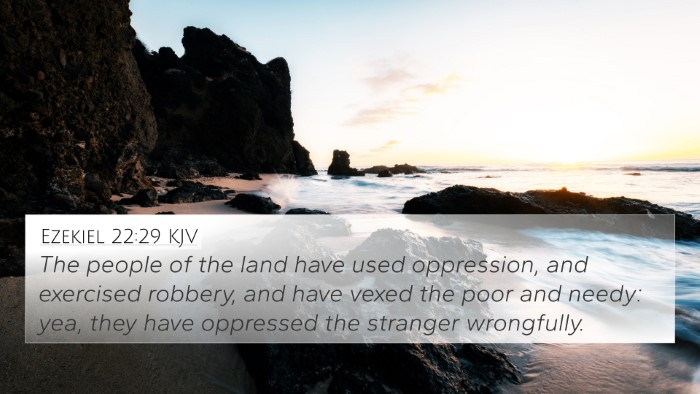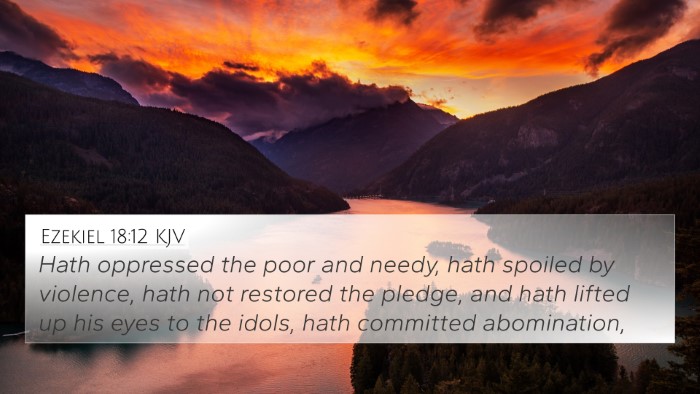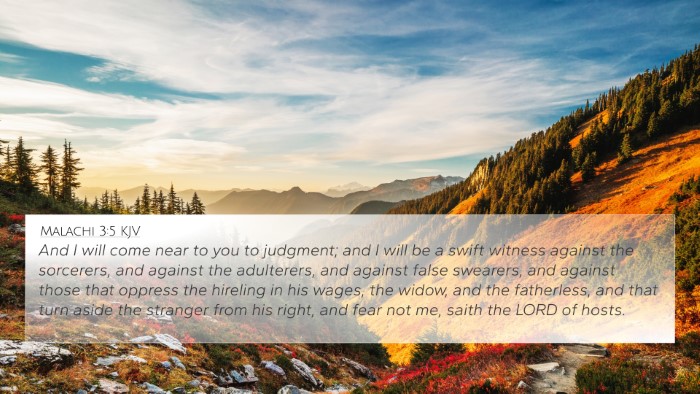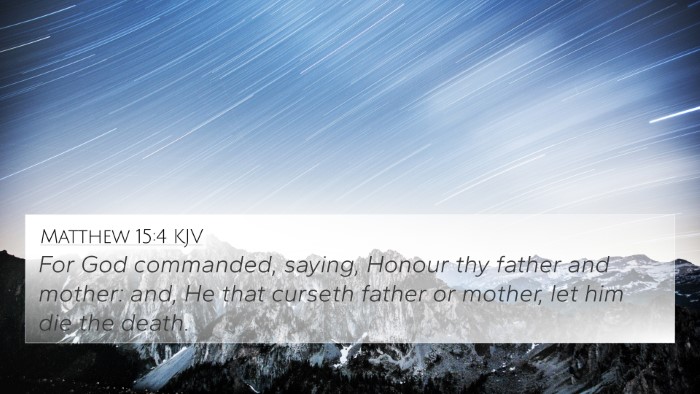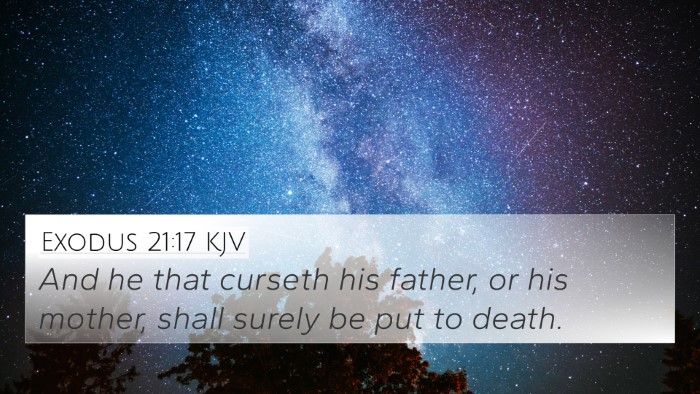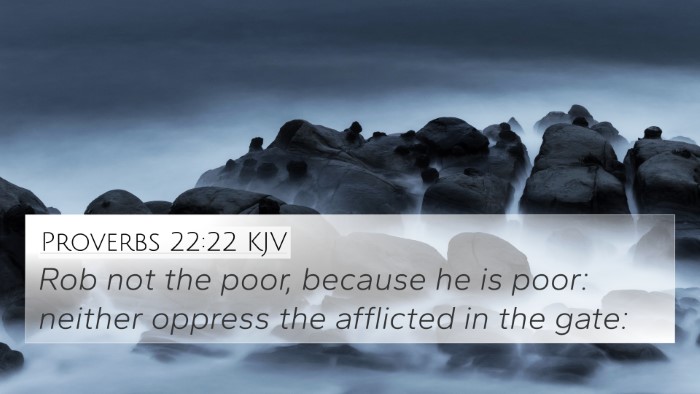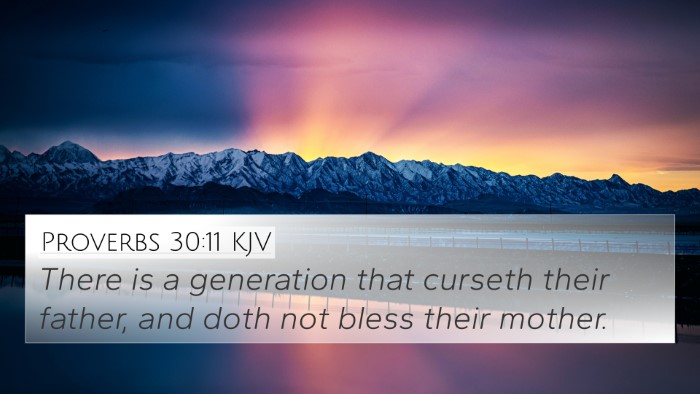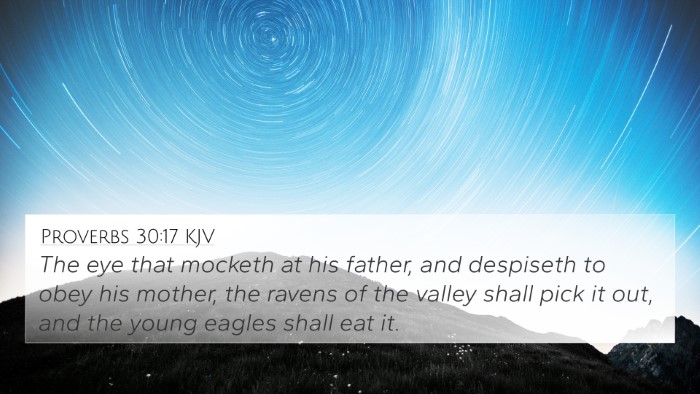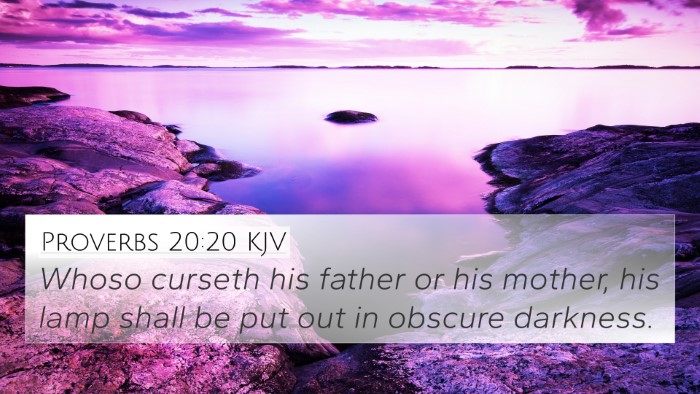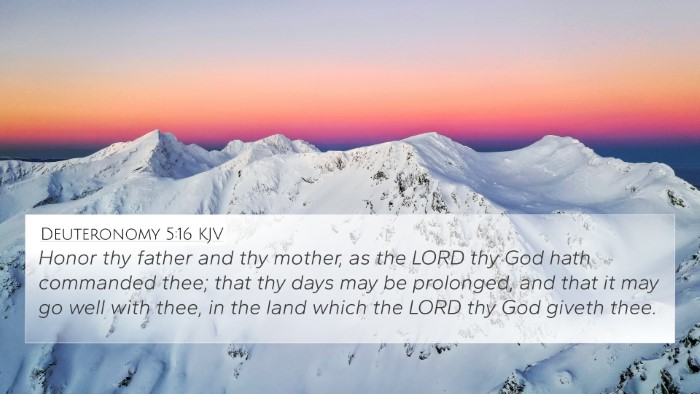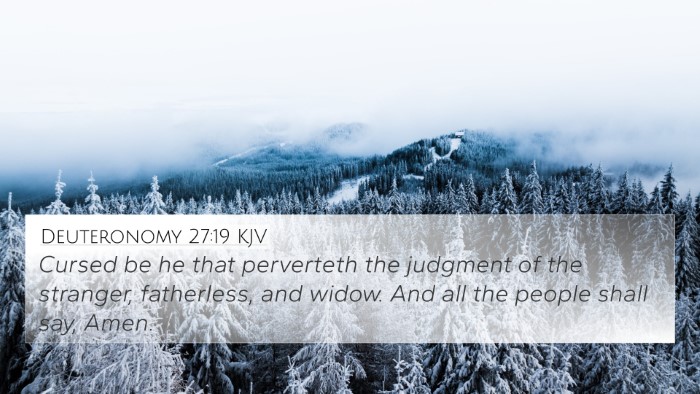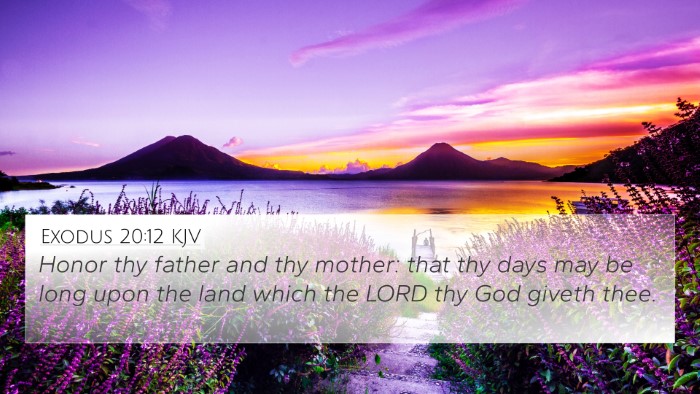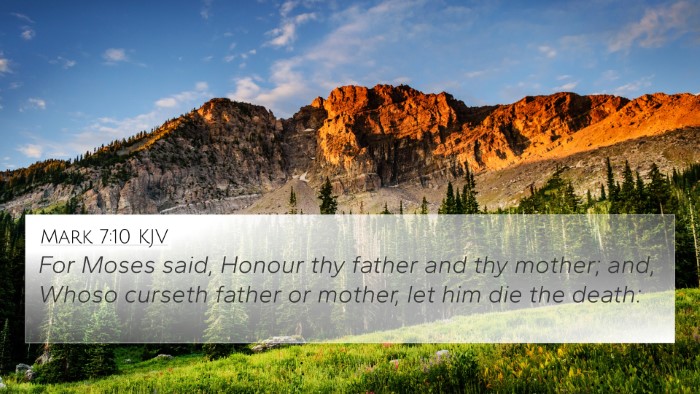Ezekiel 22:7 - Summary and Commentary
Bible Verse: Ezekiel 22:7
This verse states: "In you they have made light of father and mother; in the midst of you they have oppressed the stranger; in you they have mistreated the fatherless and widow."
Verse Meaning and Interpretation
The verse from Ezekiel highlights the moral and ethical decline of Jerusalem. It serves as a condemnation of the practices and attitudes found within the city, emphasizing a lack of respect for familial roles and the injustice dealt towards the most vulnerable members of society—the fatherless and widows.
Insights from Public Domain Commentaries
-
Matthew Henry:
Henry points out that the offenses listed are indicative of a broader failure to observe the commandments of God, primarily the fifth commandment, which urges honor towards parents. By neglecting to honor their parents, the people are also exhibiting a wider disregard for social justice and compassion.
-
Albert Barnes:
Barnes emphasizes the theological implications of these actions as violations of the covenant community. The oppression of the stranger and the mistreatment of orphans and widows are particularly severe in light of the identity of Israel as a nation chosen to uphold justice and mercy.
-
Adam Clarke:
Clarke focuses on the sociocultural context, highlighting how the neglect of family values leads to societal breakdown. The behavior described is not just a personal failing; it reflects a community that has strayed from the core values outlined in the Torah, thus incurring divine judgment.
Bible Verse Cross-References
To understand Ezekiel 22:7 better, one can examine several related Bible verses that illuminate similar themes of justice, familial respect, and social responsibility:
- Exodus 20:12: "Honor your father and your mother, that your days may be long upon the land which the Lord your God is giving you."
- Deuteronomy 24:17: "You shall not pervert the justice due to the stranger or the fatherless, nor take a widow's garment as a pledge."
- Psalms 82:3: "Defend the poor and fatherless; do justice to the afflicted and needy."
- Proverbs 14:31: "He who oppresses the poor reproaches his Maker, but he who honors Him has mercy on the needy."
- Isaiah 1:17: "Learn to do good; seek justice, rebuke the oppressor; defend the fatherless, plead for the widow."
- James 1:27: "Pure and undefiled religion before God and the Father is this: to visit orphans and widows in their trouble, and to keep oneself unspotted from the world."
- Matthew 23:23: "Woe to you, scribes and Pharisees, hypocrites! For you pay tithe of mint and anise and cumin, and have neglected the weightier matters of the law: justice and mercy and faith."
Connections Between Bible Verses
Ezekiel 22:7 serves as a crucial pivot point for understanding various scriptural endeavors to expound upon justice and familial duty throughout both the Old and New Testaments. Linking Bible scriptures can unearth a vibrant tapestry of moral guidance woven throughout biblical history.
Tools for Bible Cross-Referencing
To deepen your understanding of Ezekiel 22:7, utilizing a variety of tools for Bible cross-referencing can be beneficial. These may include:
- Bible concordance
- Bible cross-reference guide
- Bible reference resources
- Comprehensive Bible cross-reference materials
Conclusion
In conclusion, Ezekiel 22:7 acts as a poignant reminder of the social responsibilities that believers hold. By studying and using methodologies like cross-referencing Biblical texts, one can gain a holistic view that enhances understanding and inspires action aligned with scriptural teachings. As we reflect on this verse and its implications, we are called to consider the ethical dimensions of our behavior toward others, particularly those who are most vulnerable.
